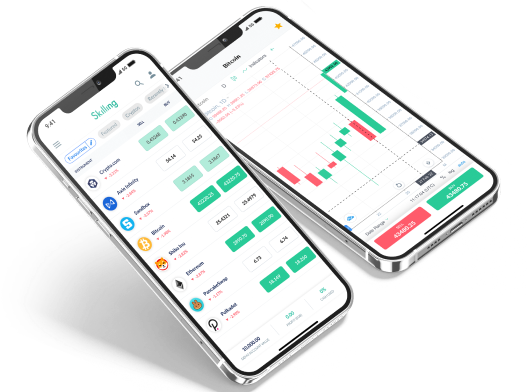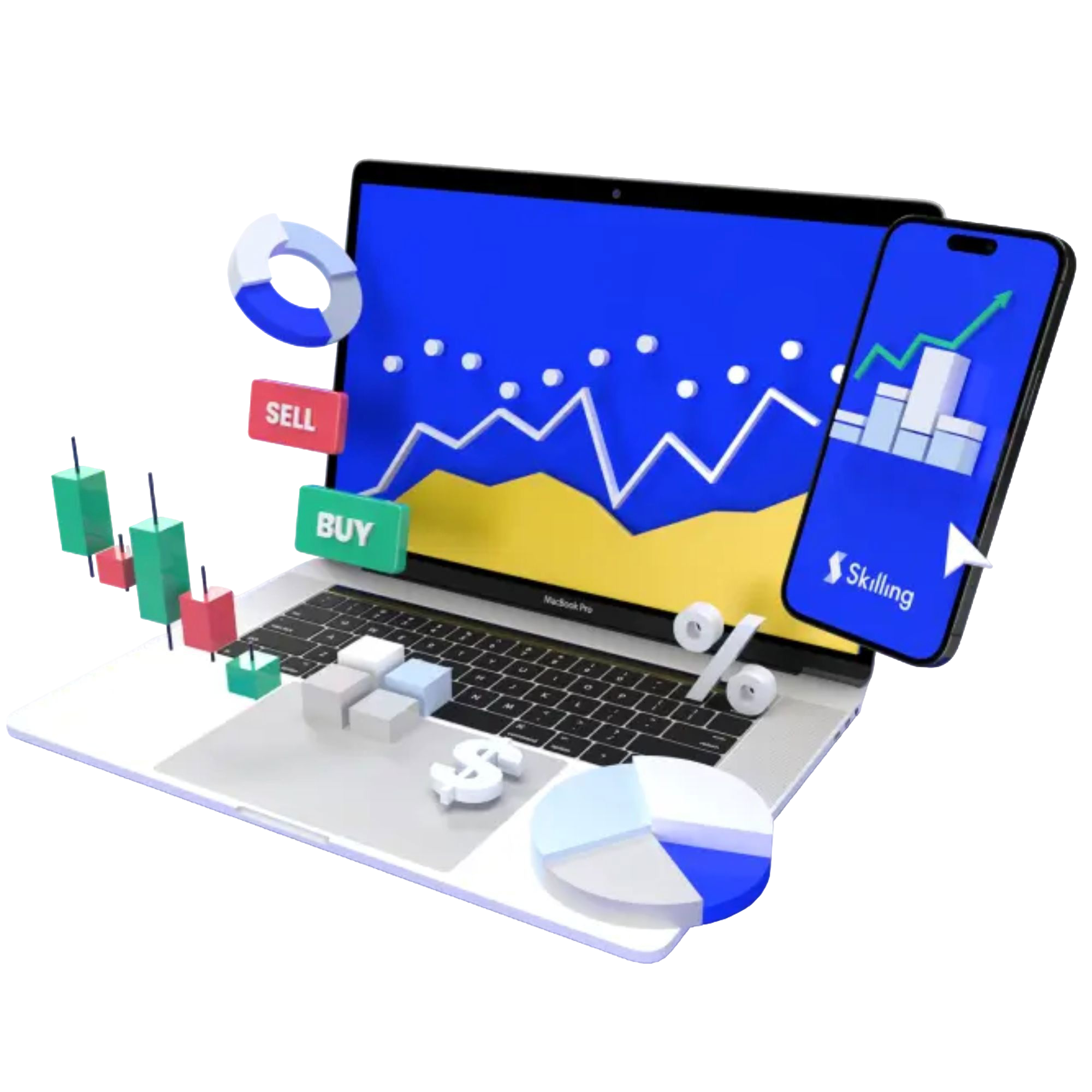The only question on everyone's mind right now is whether the FED and ECB will lower interest rates in 2024. This matters because it affects how much it costs to borrow money. The last time the Fed raised rates was in July 2023 while the last time ECB raised rates was in September 2023. When interest rates go up, it becomes more expensive to borrow money from banks. This affects everyone from big companies to regular people taking out loans for homes or cars. But it also impacts the stock market and other markets like Forex, cryptocurrency, etc. Let's dive into what happens when interest rates go up and how it affects different parts of the economy and markets.
Experience Skilling's award-winning platform
Try out any of Skilling’s trading platforms on the device of your choice across web, android or iOS.

What does the interest rate hike mean?
When we talk about an interest rate hike, it means that the central bank, like the Federal Reserve (FED) or the European Central Bank (ECB), is increasing the cost of borrowing money. Imagine you're asking to borrow $100 from a bank. With a higher interest rate, the bank might say, "Sure, but you have to pay us back $110 instead of $105." So, an interest rate hike means it's more expensive to borrow money because you have to pay back more than you borrowed. This impacts everything from getting a loan for a house or car to the interest you earn on your savings account.
Pros and cons of Fed and ECB raising interest rates
| Pros of the Fed and ECB raising interest rates | Cons of the Fed and ECB raising interest rates |
|---|---|
| Control inflation: When the economy is growing too fast, prices could rise quickly, leading to inflation. Raising interest rates could help slow down this rapid growth by making borrowing more expensive. This, in turn, could help prevent prices from rising too quickly, keeping inflation in check. | Slower economic growth: When borrowing money becomes more expensive, businesses and consumers may cut back on spending and investment. This could slow down economic growth, as businesses may delay expansion plans and consumers may postpone big purchases like homes or cars. |
| Strengthen currency: Higher interest rates could attract foreign investors looking for better returns on their investments. This increased demand for the currency could strengthen its value relative to other currencies, which could be good for international trade and investment. | Higher borrowing costs: As interest rates rise, the cost of borrowing money increases for everyone, from individuals taking out mortgages to businesses looking to expand. This could make it harder for people to afford loans, which could slow down economic activity. |
| Encourage saving: Higher interest rates could make it more attractive to save money in savings accounts or other investments. This could encourage people to save more, which could provide stability to the financial system and help individuals build wealth over time. | Impact on stocks and bonds: Rising interest rates could lead to lower stock prices, as investors may shift their money away from stocks and into bonds or other investments offering higher returns. This could cause volatility in the stock market and may negatively affect investors' portfolios. |
Practice with a Demo Account
Try our demo account and experience real market conditions.

Will the Fed and ECB hike rates in 2024?
It's still uncertain whether the Fed and ECB will hike rates in 2024. Here's why:
- Inflation eased slightly in April 2024: Despite the increase in CPI, inflation eased slightly in April 2024, providing some relief for consumers. This could lead the central banks to take a more cautious approach to raising interest rates, as they may want to ensure that inflation remains under control without stifling economic growth.
- CPI Increased 3.4% on a 12-month basis: While inflation eased slightly in April, on a 12-month basis, the CPI increased by 3.4%, which is in line with expectations. This suggests that inflationary pressures persist, which could influence the central banks' decisions regarding interest rates.
Overall, the decision to hike rates will depend on various factors, including the trajectory of inflation, economic growth, and the central bank's assessment of the overall economic outlook. Further data and economic indicators will likely be closely monitored by policymakers to inform their decisions on whether to raise rates in 2024. Past performance is not indicative of future results, and decisions will be made based on current and projected economic conditions.
Trade 1200+ global CFD instruments with a trusted Scandinavian-owned broker
1200+ CFD instruments including stocks, Forex, Bitcoin price, Gold - XAUUSD.
Low spreads starting from 0.1 pips.
Multiple withdrawal and deposit methods.
Fast execution of trades.
Multi-award-winning trading platforms.
Get started with Skilling now!











